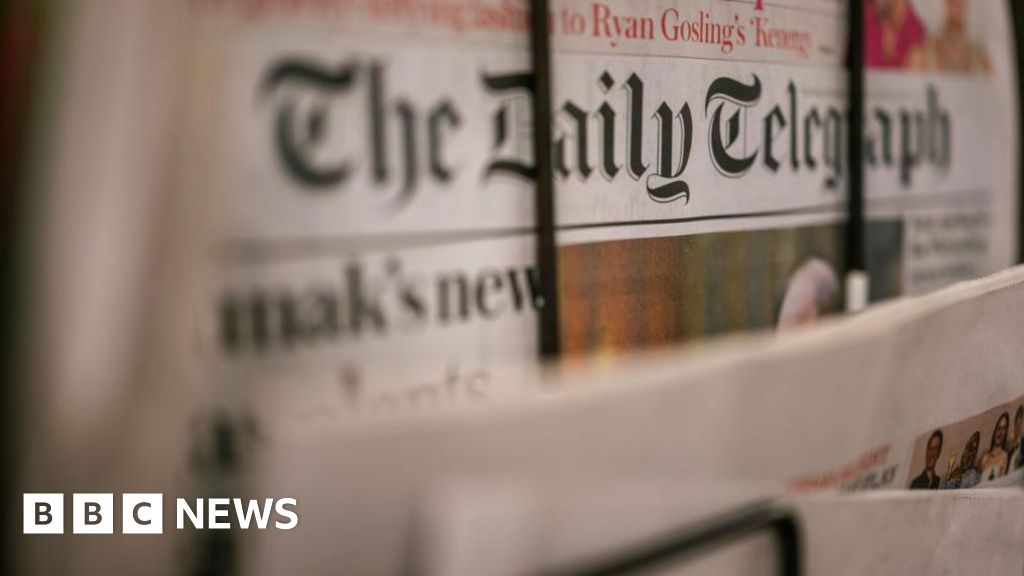ARTICLE AD BOX
By Natalie Sherman & Michelle Fleury
Business reporters, New York
Sevan Tavoukdjian with a toaster he found for free
Prices in the US soared 7% last year - the biggest annual increase in nearly four decades. Now US consumers - whose spending powers the world's largest economy - are starting to signal they have had enough.
"I find now, that I'm constantly tracking the cost of certain items," Sevan Tavoukdjian says. "It's changed which items I buy."
The 34-year-old actor moved into his own apartment in New York City last month and when he saw how much it would cost to furnish it, he was shocked at the prices being charged.
So, he scrapped plans to buy furniture and instead sent a message to his neighbourhood “Buy Nothing” Facebook group, where people offer unwanted items for free.
“I thought, 'I’m going to go broke just buying the basic necessities'," he says. “I would have loved to buy a new couch, but the prices are like, ‘Well – No’.”
The average American family had to spend roughly $3,500 (£2,600) more last year than in 2020 for the same goods and services due to inflation, according to researchers at the University of Pennsylvania Wharton School.
Housing costs were up 4.2%, grocery bills jumped 6.3% and clothing prices were 5.8% higher. Living and dining furniture - like Mr Tavoukdjian was seeking - saw one of the biggest spikes, rising more than 17%.
But salaries have not kept up with the increases, pushing people to forego purchases, substitute cheaper alternatives, or - like Sevan - hunt for something free.
The situation has driven a surge in activity on neighbourhood exchanges such as the Buy Nothing Project, the group Mr Tavoukdjian turned to when he wanted to furnish his apartment, building on growth since the start of the pandemic.
Image source, Getty Images
Image caption,Shoppers power the American economy but soaring prices are starting to hurt
Membership in the group has more than doubled over the past two years to more than 5.3 million globally. It recently added an app to cope with demand.
At Freecycle, a similar site where participants typically offer up some 20,000 items each day, the number of posts each day has increased by about 15% in recent months, driven by the financial concerns, founder, Deron Beal says.
"People, understandably, they're buying petrol or going to the store and seeing high prices...seek to pinch their pennies a little bit and Freecycle... is a good alternative," he says.
Even families with higher incomes, who might ordinarily be insulated from the pressures, are reconsidering their ordinary spending, says Tania Brown, a financial planner based in Georgia, with more than 20 years' experience.
“There is an across-the-board sense of worry about inflation: ‘How long is this going to last, how this is going to impact their daily life',” she says. “I am definitely hearing differences and changes.”
Image source, Tania Brown
Image caption,Financial planner Tania Brown says even clients with higher incomes are noticing price pressures
The squeeze contributed to a pullback in consumer spending in December - a deceleration that is likely to continue, says Kathy Bostjancic, chief US financial economist at Oxford Economics.
Her firm expects consumer spending growth of around 3.5% this year – still strong, but a marked slowdown from last year’s massive 8% gain, not including inflation.
“Consumers, both out of price 'sticker shock', and also frustration that the… choices they have available are so lean, have decided to make alternative choices – whether that’s not to buy at all, or find a second-hand couch,” she says.
Given the mix of factors driving inflation - supply chain hold-ups, labour shortages, government stimulus and more - it's hard to say when households will get some relief from falling prices, if demand wanes, says economist Zheli He, who worked on the University of Pennsylvania research.
Purchases of some hard-to-substitute items, such as petrol, have kept rising despite dramatic price gains, she says.
"People just have to spend on them [hard-to-swap items] so, the higher prices will just drive up their cost of living," she says.
Mr Tavoukdjian, who has been grappling with cuts to his hours teaching as an adjunct literature professor, says he's been amazed by what people are offering in his local Buy Nothing group: everything from never-been-used pillows and plates, to hand-me-down children's toys and clothes - and sometimes more off-beat items such as breast milk.
His own plea for help was amply answered. Within days, he had transformed his bare-bones New York City studio into a home, adding five chairs, two small tables, two lamps, a sofa, rug, microwave, toaster, several sets of dishes, paintings and half a dozen throw pillows.
But the shock of the prices from his initial search has lingered.
When his vacuum cleaner broke recently, he didn't pull out his wallet for a new one. He headed to Buy Nothing for help.
“They’ve made a massive difference,” he says. “It’s amazing what’s out there.”

 3 years ago
40
3 years ago
40








 English (US) ·
English (US) ·